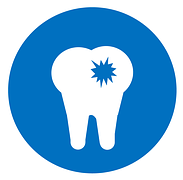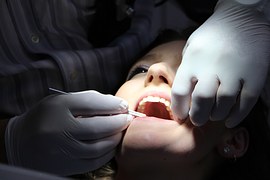Wisdom teeth are also called third molars. They are the last to grow as one progresses to adulthood. There are two wisdom teeth on the upper jaw and other two on the lower jaw. They are four in total and located at the back of the jaw bone. Sometimes the space for the wisdom teeth to grow is small as the other first teeth occupy most space.
Therefore, the wisdom teeth may partially emerge from the gum, remain within the jaw bone or do not form at all. At http://cohilfamilydentistry.com – Apopka dentist you can get more information. The wisdom teeth that have not erupted on the surface of the gum are called impacted teeth.
Problems Caused by Wisdom Teeth
Infections
Infections may develop on the gum due to the stuck wisdom teeth in the jaw bone. It occurs due to the partial gap on the gum underlying the teeth. The gap allows the bacteria and plaque to enter around the soft tissue surrounding the crown causing an infection known as pericoronitis. It is hard to clean and floss back teeth harboring bacteria and plaque.
Cyst Formation
The cyst is a suck filled with fluid forming around the crown of the impacted wisdom teeth. It is a benign growth. This fluid may damage the adjacent teeth, jaw, and nerves.
Crowding
Due to lack of enough space, the wisdom teeth grow shapeless and uneven. Also, the front teeth may crowd due to pressure from the growing wisdom teeth. Through x-rays, the oral surgeons may recommend for removal of these teeth to avoid crowding.
Other Problems
• Teeth Decay
These teeth are stuck and may be difficult to clean and floss them. The food trapped between them may cause decay due to bacteria.
• Pain
As the wisdom teeth find its way through the gum, some pain may be experienced in the gum.
• Cellulitis
The impacted wisdom teeth may cause a bacterial infection to the cheek, throat or tongue. The trapped food and bacteria facilitate cellulitis.
• Abscess
In rare cases, you find pus on the surrounding tissue of the impacted teeth.
How to Care for the Wisdom Teeth
Caring for the wisdom teeth may involve regular checkups to the dentists. Also, good oral health advised like brushing teeth after meals, mouth rinsing and applying teeth gel to sore gums.
Removal Of Wisdom Teeth And Risks
 The dentist may remove the teeth under local or general anesthesia depending on the health of the patient. However, even if the teeth do not pose any problems after thorough examination removal is recommended as they are associated with chronic bacterial diseases. Some risks associated with wisdom teeth removal include; Bleeding, numbness, infection and a dry tooth socket.
The dentist may remove the teeth under local or general anesthesia depending on the health of the patient. However, even if the teeth do not pose any problems after thorough examination removal is recommended as they are associated with chronic bacterial diseases. Some risks associated with wisdom teeth removal include; Bleeding, numbness, infection and a dry tooth socket.



